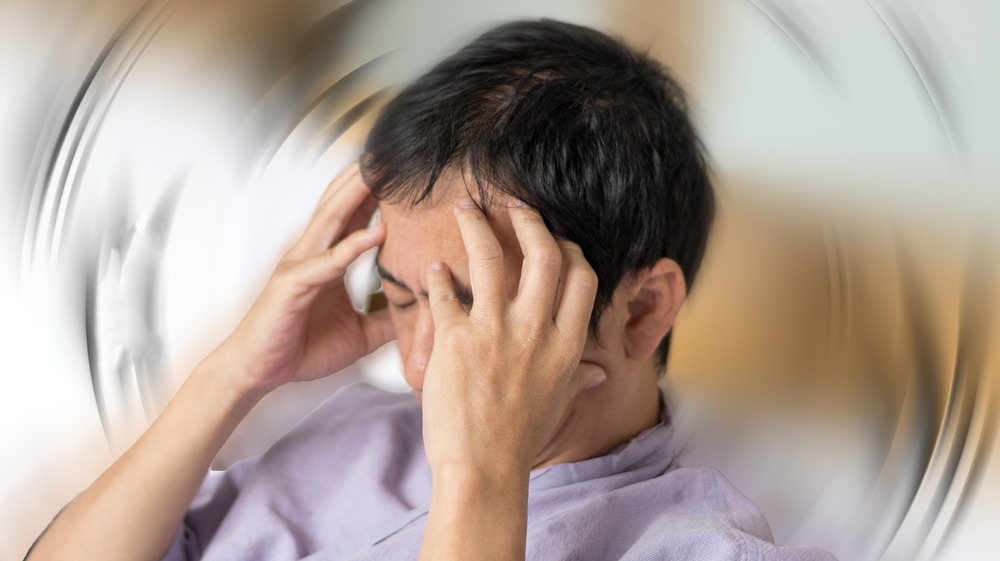Why You Should Think Twice Before Holding In Your Sneeze
Whether you're in a crowded subway car or in the middle of a group meditation, at some point or another we have all suppressed the completely natural urge to sneeze. While it may seem like a harmless act at the time, holding in your sneeze is not such a good idea, according to Dr. Paul Kaloostian, a board-certified neurosurgeon, who spoke exclusively to Health Digest.
For starters, a sneeze is the process of expelling unwanted and potentially harmful irritants from the respiratory tract (via Healthline). These irritants can range from a pungent fragrance to bacteria, and can cause the cilia, hair-like structures in the nose, to trigger a sneezing response. In essence, sneezing "resets" the nasal environment with the hopes of ridding your body of potentially dangerous irritants.
We all know that sneezing is not a passive, relaxing action but rather a very brief and forceful bodily contraction. Dr. Kaloostian says, "During the act of sneezing, the pressure in the human trachea reaches about 7000 Pa of force, which is significantly higher than 200 Pa of force during high activity exhalation." While on its own sneezing produces tremendous force, holding in the sneeze "causes a dramatic increase in pressure difference in the respiratory tract that is up to 24 times that of the force during a normal sneeze." You read that correctly — that "harmless" suppression of a sneeze increases the force in your body up to 24 times, which doesn't come without some risk.
The potentially harmful health effects of suppressing a sneeze
Dr. Kaloostian notes that current literature identifies 52 reported cases of sneeze-related injuries which include "intrathoracic injury, laryngeal/pharyngeal injury, ocular/orbital injury, intracranial/neurological injury, and otologic injury." Basically, the injuries, which occur predominantly in males (approximately 81 percent), can cause harm to the brain, eyes, ears, and respiratory system.
One 2015 case study in particular identified a middle-aged man who developed a subarachnoid hemorrhage (bleeding into the tissue surrounding the brain), which lead to neurological complications, from sneezing forcefully. The man presented to the hospital with "the worst headache" of his life, which began immediately after sneezing.
Dr. Kaloostian also acknowledges additional studies on the matter which have shown inner ear injury, causing reflexogenic vertigo and permanent sensorineural hearing loss. Therefore, in order to avoid any potentially debilitating health risks, Dr. Kaloostian recommends that you let that sneeze out, uninterrupted. While the time and situation may not be ideal, your body will be grateful.


